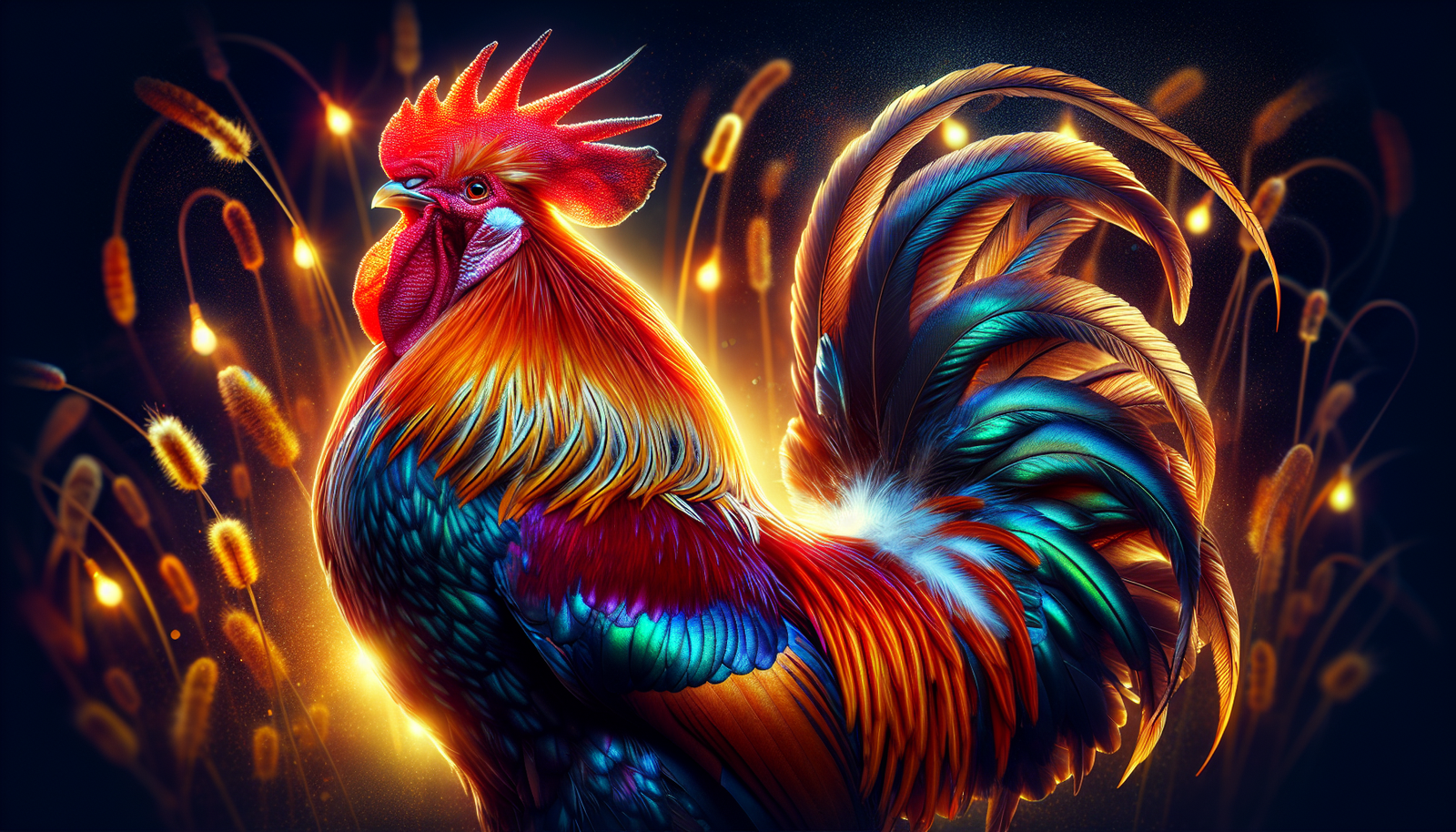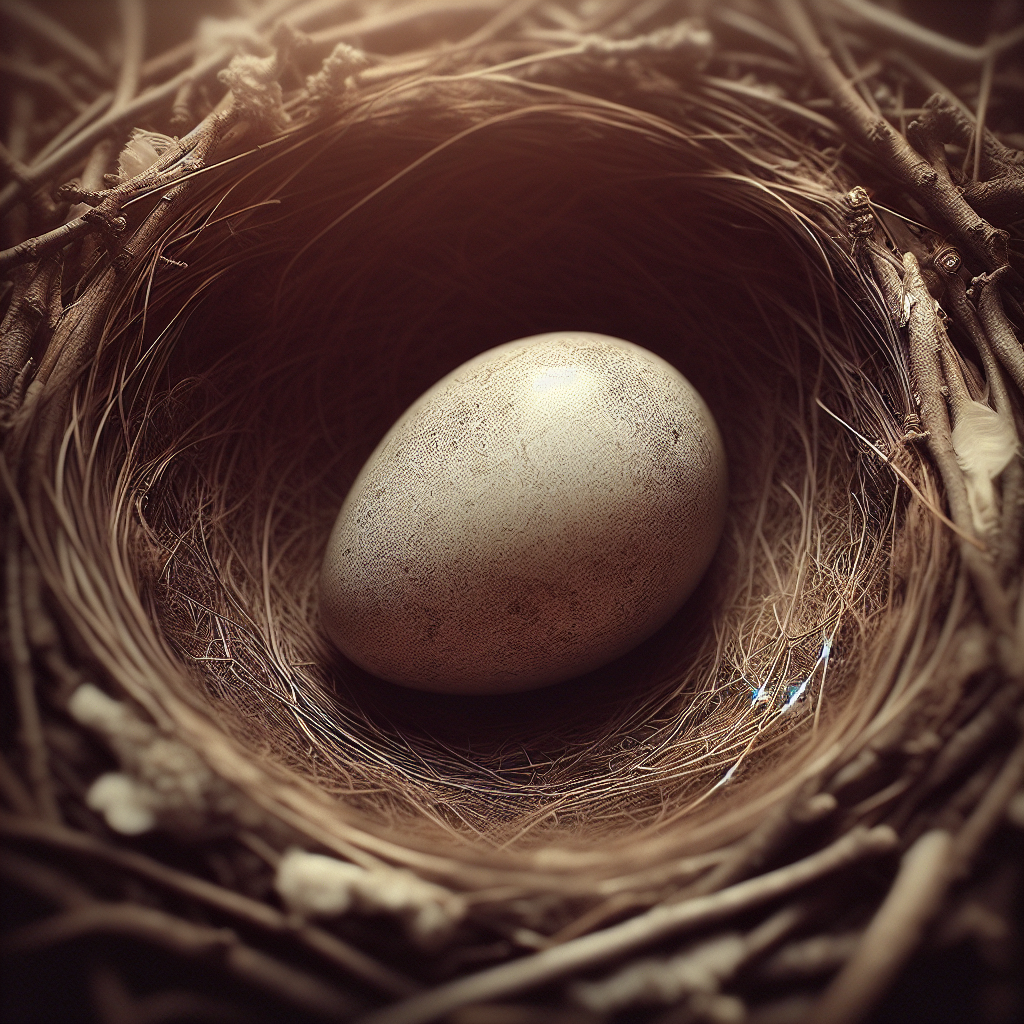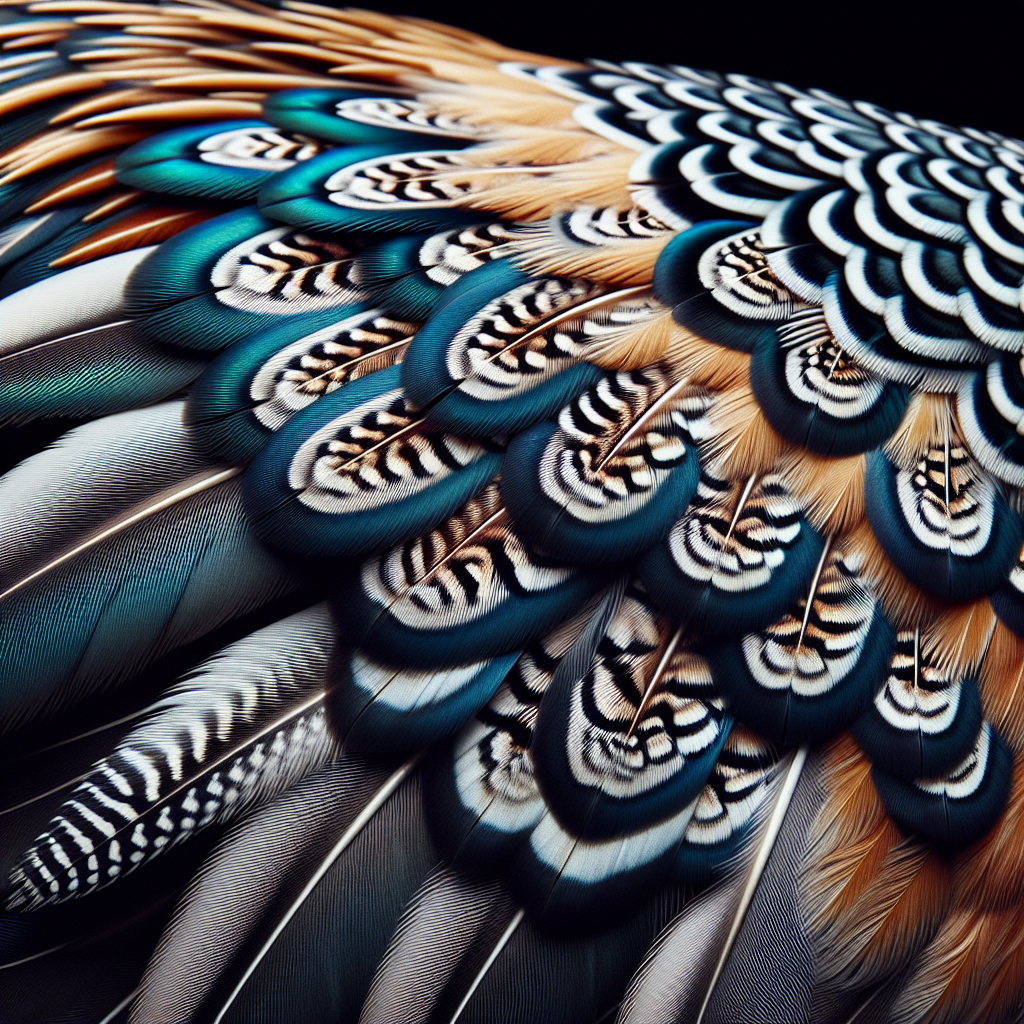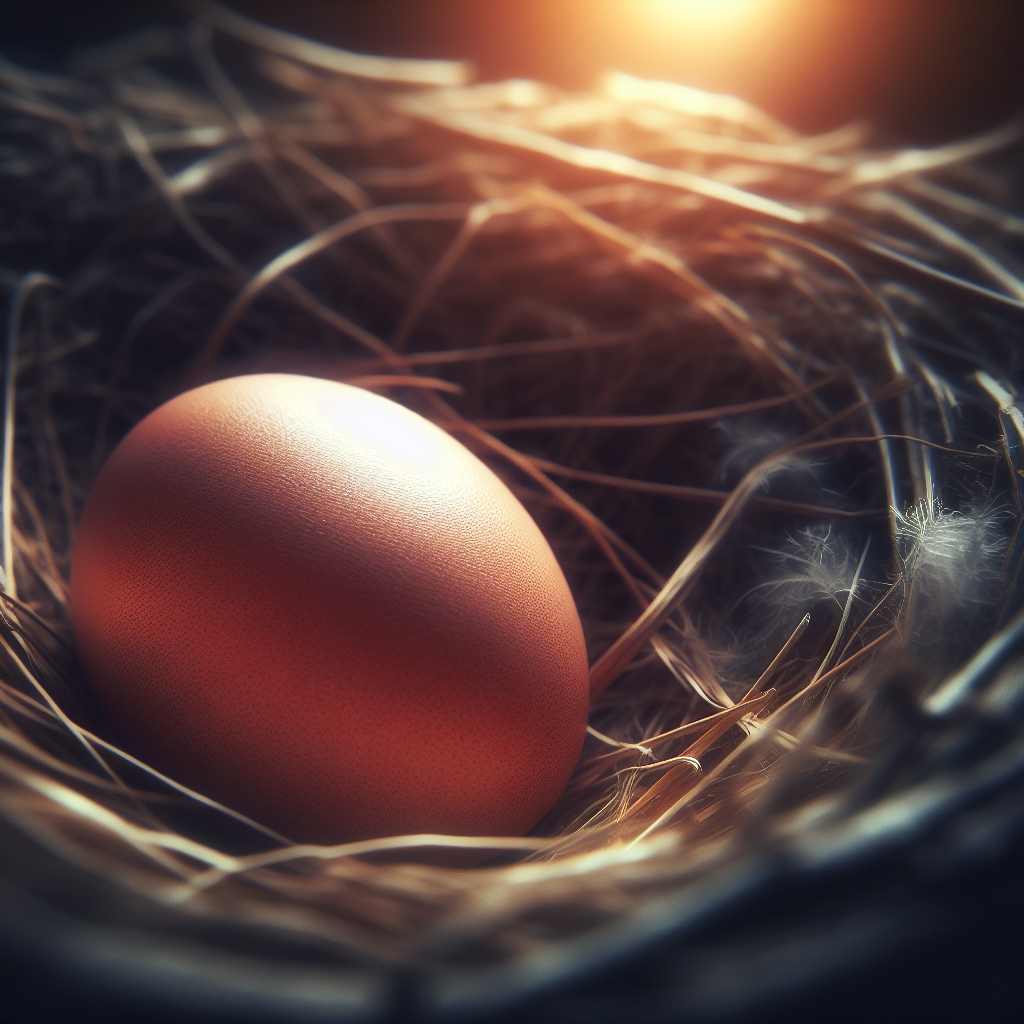Are you eager to learn about the secrets behind breeding show or competition chickens? Look no further! This article will reveal the specialized techniques that can help you achieve success in the world of poultry breeding. In this comprehensive guide, we will explore the methods that experienced breeders swear by, from selecting the right breed to implementing strict grooming and conditioning routines. Get ready to discover the fascinating world of breeding show or competition chickens and unlock the key to raising prize-winning birds. Breeding show or competition chickens requires careful planning and implementation of various techniques to ensure the best possible outcome. In this article, we will explore the different breeding practices, the selection process, feeding and nutrition, housing and environment, breeding season, egg incubation, chick rearing, health and disease prevention, training and conditioning, as well as showing and competing. By understanding these aspects, you can give your chickens the best opportunity to excel in the show or competition arena.
Breeding Practices
Breeding practices play a crucial role in producing high-quality show or competition chickens. Some of the common techniques include selective breeding, line breeding, inbreeding, and outcrossing.
Selective Breeding
Selective breeding involves carefully choosing specific chickens that possess desirable traits and characteristics. By mating these selected chickens together, you increase the chances of producing offspring with those desired traits. This technique allows you to focus on improving specific features such as plumage color, body shape, or feather pattern.
Line Breeding
Line breeding is a technique where chickens from the same bloodline are bred together to maintain a specific set of traits across generations. This method helps stabilize desirable characteristics while reducing the probability of inheriting undesirable genes. However, caution must be exercised to avoid excessive inbreeding.
Inbreeding
Inbreeding is the process of mating closely related chickens, such as siblings or parent-offspring, to intensify specific traits. While it can produce consistent results in terms of phenotype, it also increases the risk of inheriting genetic defects. Therefore, inbreeding should be approached with caution, and proper genetic testing is crucial to ensure the health and quality of the offspring.
Outcrossing
Outcrossing involves breeding chickens from different bloodlines to introduce new genetic material and increase genetic diversity. This technique helps prevent the potential negative effects of excessive inbreeding, such as reduced fertility or increased susceptibility to diseases. Outcrossing can also improve overall vigor and enhance specific traits.
Selection Process
The selection process is a crucial step in breeding show or competition chickens. It involves assessing various factors, including physical characteristics, temperament, behavior, and health.
Physical Characteristics
When selecting chickens for breeding, focus on physical traits that align with the breed standard and are desirable in the show or competition setting. This may include factors such as body shape, size, coloration, feather quality, and overall conformation. Understanding the breed standard and comparing individual chickens to it will help you determine which birds possess the most desirable physical characteristics.
Temperament and Behavior
In addition to physical traits, temperament and behavior are also important considerations. Show or competition chickens should have a calm and docile disposition, allowing for easier handling during shows or competitions. Aggressive or overly nervous chickens may not perform well in such settings, so selecting birds with a friendly and cooperative nature is essential.
Health and Genetic Testing
Ensuring the health of your breeding chickens is of utmost importance. Regular veterinary check-ups, vaccinations, and parasite control are essential to prevent the spread of diseases and maintain optimal health. Additionally, genetic testing can help identify any potential inherited conditions or defects, allowing you to make informed breeding decisions and avoid passing on undesirable traits to future generations.
Feeding and Nutrition
Proper nutrition is vital for the overall health and development of show or competition chickens. Providing a balanced diet and necessary supplements is crucial to support their growth and ensure optimal performance.
Specialized Diets
Consider offering specialized diets that are tailored to meet the specific nutritional needs of show or competition chickens. These diets often contain high-quality protein sources, such as poultry meal or fish meal, which contribute to healthy feather development and muscle growth. Additionally, including a blend of grains, seeds, fruits, and vegetables provides necessary vitamins, minerals, and antioxidants.
Supplements and Vitamins
Supplements and vitamins can further enhance the nutritional status of your chickens. Adding vitamin and mineral supplements can fill any potential gaps in their diet, ensuring they receive all the necessary nutrients for optimal health and performance. Supplements such as probiotics can also promote a healthy gut microbiome, enhancing digestion and nutrient absorption.
Housing and Environment
Creating a suitable housing and environment for your show or competition chickens is essential for their well-being and overall performance.
Clean and Sanitary Conditions
Maintaining clean and sanitary conditions in the chicken housing is vital. Regularly clean the coop to prevent the buildup of waste, provide fresh bedding, and ensure proper ventilation. Cleanliness reduces the risk of diseases and promotes a healthy living environment for your chickens.
Temperature Control
Temperature control is crucial for the comfort and health of your chickens. Ensure the coop is adequately insulated, well-ventilated, and equipped with heating or cooling systems depending on the climate. Maintaining a consistent temperature range promotes optimal growth, feather development, and overall well-being.
Adequate Space
Providing sufficient space is essential for the physical and mental stimulation of your chickens. Overcrowding can lead to stress, aggression, and poor overall health. Ensure that each chicken has enough space to move, stretch its wings, and engage in natural behaviors. Ample space promotes exercise, reduces the risk of injuries, and supports the development of strong and healthy birds.
Breeding Season
Understanding the breeding season and implementing proper timing and conditioning techniques can significantly impact the success of your breeding program.
Timing and Frequency
Different breeds and strains may have specific breeding seasons. Researching and understanding the breeding patterns of your chosen breed is essential. Mating your chickens during their natural breeding season increases the chances of successful reproduction. Additionally, consider the frequency of mating to prevent excessive stress on the hens and ensure optimal fertility.
Conditioning
Preparing your chickens for the breeding season through proper conditioning is crucial. This includes providing a well-balanced diet rich in essential nutrients, maintaining good hygiene and sanitation, and allowing sufficient rest periods. Conditioning helps improve fertility, overall health, and reproductive success.
Egg Incubation
Incubating eggs properly is crucial to ensure their viability and hatchability. Paying attention to temperature, humidity, and managing the incubation period are essential aspects of successful egg incubation.
Proper Temperature and Humidity
Maintaining a consistent and appropriate temperature and humidity level throughout the incubation period is essential. Most chicken eggs require a temperature range of around 99-101 degrees Fahrenheit and a relative humidity level of approximately 50-55%. Deviations from these ranges can negatively impact embryo development and hatchability.
Turning Eggs
Regularly turning the eggs is necessary to prevent the embryo from sticking to the shell and promote proper development. This can be done manually several times a day or with the help of automatic egg turners. Turning the eggs ensures that the yolk and albumen are evenly distributed, allowing for better oxygen exchange and reducing the risk of developmental abnormalities.
Managing Incubation Period
Properly managing the incubation period involves monitoring the eggs’ progress and making necessary adjustments. This includes regular egg candling to assess embryo development, adjusting temperature and humidity if needed, and preparing for the hatching process. Attention to detail and following the recommended guidelines for the specific breed will increase the likelihood of successful hatching.
Chick Rearing
Chick rearing is a critical phase in the development of show or competition chickens. Proper brooder setup, feeding, care, and socialization are essential aspects to consider.
Brooder Setup
Creating a suitable brooder setup ensures that the chicks have a warm, safe, and comfortable environment to grow. Use a brooder box or a dedicated area, provide an appropriate heat source, such as a heat lamp or heating pad, and include bedding material to prevent slippage and provide insulation.
Feeding and Care
Feeding the chicks a nutritionally balanced diet from the start is essential for their growth and development. Use a high-quality chick starter feed that provides the necessary nutrients and adjust as they grow. Additionally, ensure an adequate supply of fresh water, and regularly clean the brooder to maintain optimal hygiene.
Socialization
Socializing the chicks from an early age is important for their overall behavior and performance. Handle the chicks gently, expose them to different stimuli, and provide opportunities for them to interact with other chickens. Proper socialization promotes a calm and confident temperament, making them more adaptable to different situations and environments.
Health and Disease Prevention
Maintaining the health of your show or competition chickens is vital. Preventive measures such as vaccinations, parasite control, and regular veterinary check-ups contribute to the overall well-being and performance of your birds.
Vaccinations
Consult with a veterinarian to determine the appropriate vaccination schedule for your chickens. Vaccinations can protect them against various diseases, such as Marek’s disease or Newcastle disease. Following a vaccination program tailored to your specific breed and geographical location can significantly reduce the risk of illness and enhance their overall health.
Parasite Control
Implementing a comprehensive parasite control program is crucial to prevent infestations and diseases. Regularly deworming your chickens and implementing appropriate measures to control external parasites, such as mites or lice, is essential. Maintaining clean housing conditions and practicing good hygiene can also help prevent the spread of parasites.
Regular Veterinary Check-ups
Regular veterinary check-ups are essential to monitor the overall health and well-being of your chickens. A veterinarian can perform routine examinations, conduct necessary tests, and provide advice on any health-related concerns. Early detection and intervention can prevent potential problems and ensure the longevity and success of your show or competition chickens.
Training and Conditioning
Training and conditioning your show or competition chickens is vital to prepare them for the show ring or competition arena. Handling and taming, exercise and conditioning, as well as show signal training, are important aspects to focus on.
Handling and Taming
Getting your chickens accustomed to human handling from a young age is crucial. Frequent gentle handling helps build trust between you and your chickens, making them more comfortable during shows or competitions. Gradually introduce handling, reward positive behavior, and minimize stress-inducing experiences.
Exercise and Conditioning
Regular exercise and conditioning contribute to the overall fitness and performance of your chickens. Encourage physical activity by providing ample space and opportunities for your chickens to move, explore, and engage in natural behaviors. Conditioning can involve activities such as free-ranging, supervised foraging, or introducing agility exercises to improve coordination and stamina.
Show Signal Training
Training your show or competition chickens to respond to specific show signals or commands helps enhance their performance in the ring. Familiarize them with common show routines, such as being placed on a table or standing still while being evaluated. Use cues and treats during training sessions to reinforce desired behaviors and create positive associations with the show environment.
Showing and Competing
Once you have prepared your show or competition chickens through breeding, nutrition, and training, it’s time to focus on the show or competition itself. Grooming and presentation, show preparation, and understanding judging criteria are vital aspects to consider.
Grooming and Presentation
Presenting your chickens in their best condition is essential to make a lasting impression. Regularly groom your chickens by cleaning their feathers, trimming nails, and ensuring their overall appearance is tidy and well-maintained. Pay attention to the breed-specific grooming standards, and take pride in presenting your chickens in their finest form.
Show Preparation
Preparing your chickens for the show involves acclimating them to the show environment, ensuring their health and well-being, and familiarizing them with show procedures. Practice transitioning them onto show tables, exposing them to new sights and sounds, and gradually increasing the duration of training sessions. Ensure your chickens are healthy and stress-free, as this will significantly impact their performance.
Judging Criteria
Understanding the judging criteria specific to your breed or competition helps you assess your chickens’ strengths and areas for improvement. Study the breed standard or competition guidelines thoroughly, paying attention to factors such as conformation, plumage, size, coloration, and temperament. By aligning your training, grooming, and presentation with the criteria, you increase your chances of success in the show or competition.
Breeding show or competition chickens requires a combination of knowledge, dedication, and meticulous planning. By implementing specialized breeding practices, selecting for desirable traits, providing proper nutrition and care, and preparing your chickens for the show or competition, you can give them a competitive edge. Remember to prioritize their health and well-being throughout the process, and enjoy the journey of bringing forth the next generation of exceptional show or competition chickens.




